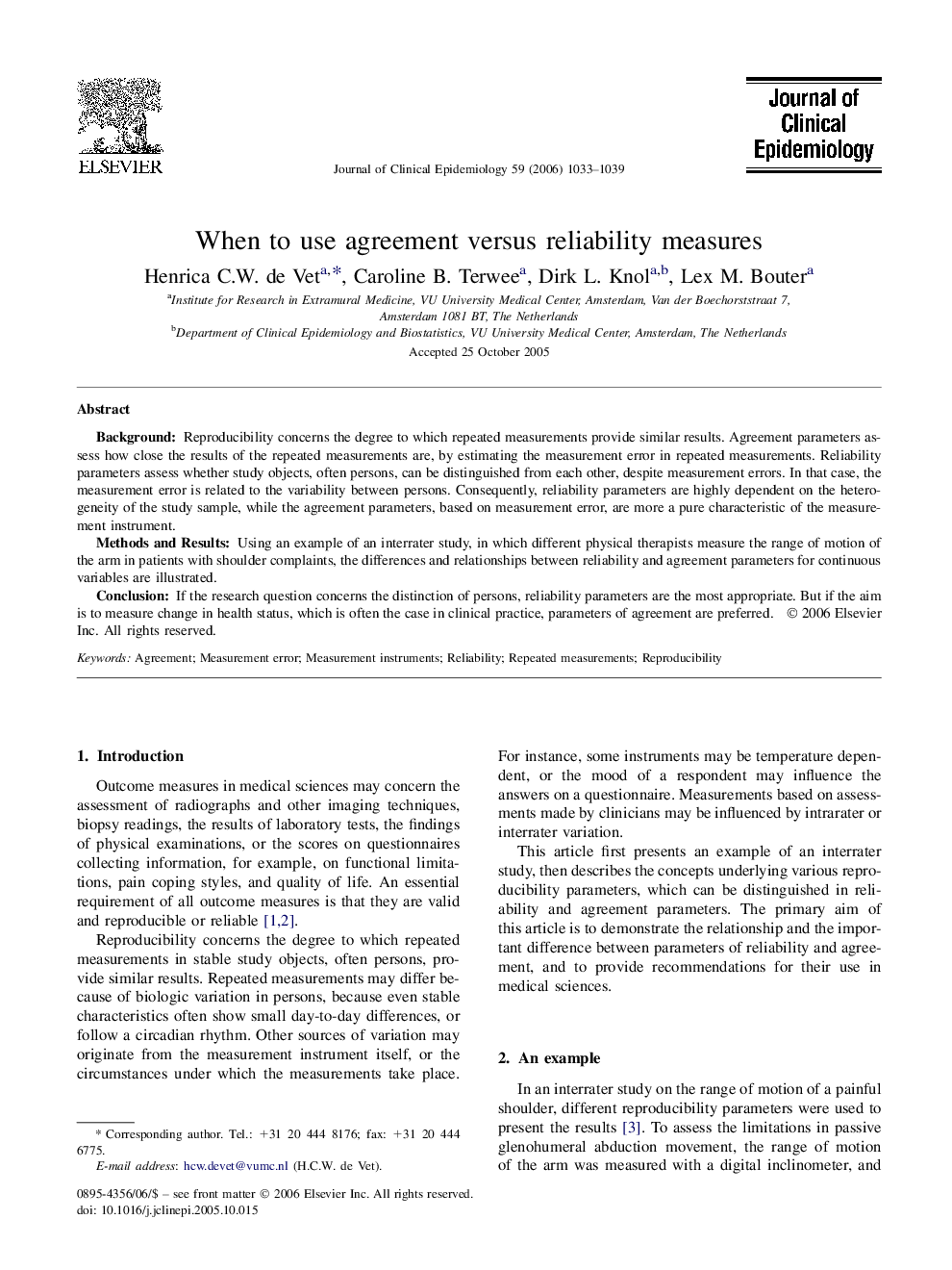| کد مقاله | کد نشریه | سال انتشار | مقاله انگلیسی | نسخه تمام متن |
|---|---|---|---|---|
| 1083293 | 950993 | 2006 | 7 صفحه PDF | دانلود رایگان |

BackgroundReproducibility concerns the degree to which repeated measurements provide similar results. Agreement parameters assess how close the results of the repeated measurements are, by estimating the measurement error in repeated measurements. Reliability parameters assess whether study objects, often persons, can be distinguished from each other, despite measurement errors. In that case, the measurement error is related to the variability between persons. Consequently, reliability parameters are highly dependent on the heterogeneity of the study sample, while the agreement parameters, based on measurement error, are more a pure characteristic of the measurement instrument.Methods and ResultsUsing an example of an interrater study, in which different physical therapists measure the range of motion of the arm in patients with shoulder complaints, the differences and relationships between reliability and agreement parameters for continuous variables are illustrated.ConclusionIf the research question concerns the distinction of persons, reliability parameters are the most appropriate. But if the aim is to measure change in health status, which is often the case in clinical practice, parameters of agreement are preferred.
Journal: Journal of Clinical Epidemiology - Volume 59, Issue 10, October 2006, Pages 1033–1039